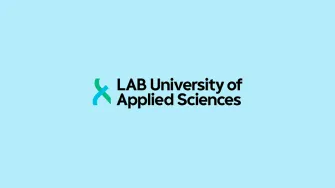RELE - Ratkaisuja alueelliseen kestävyyteen ja energiatehokkuuteen
RELE aims to improve the energy efficiency of old buildings, develop urban models for energy management, promote regional sustainability, prepare for future legislation and improve energy skills. Finland has a large number of old public buildings in need of energy efficiency improvements. The new Energy Efficiency Directive (EED 2012/27/EU), part of the EU's 55-package, sets requirements for the energy performance of public buildings. It is possible to improve energy efficiency through renovation, but financing can be a challenge. Solutions are needed to improve energy efficiency without major investments.
The government programme emphasises new technologies and the use of data in zero-emission energy solutions. Demand response and energy storage require real-time data. Data management is essential for integrated energy and transport systems, but the fragmentation of data across systems poses challenges.
The project will contribute to the objectives of Heinola's Climate Roadmap and support businesses and residents in the region to use eco-solutions. Vierumäki offers opportunities for energy-efficient businesses and acts as a transport hub. Extensive use of renewable energy is also planned for the area. The main objective of the project is to improve energy efficiency through economically viable measures.
The EU's 55-pack will bring additional requirements for energy consumption and energy efficiency for businesses and municipalities. The Energy Efficiency Directive is only the first of these. Energy audits will increase the knowledge of building owners, but their impact on energy efficiency measures needs to be further examined.
The project's measures focus on strategic renewal, attractiveness and the promotion of social objectives. The three main measures are:
1. Improving the energy efficiency of older buildings: energy efficiency in older public and company-owned buildings will be studied and mapped. The aim is to optimise energy efficiency through demand response and new technologies.
2. Managing energy consumption and efficiency data in urban models: modelling regional energy consumption and using the data to improve energy efficiency. Combining data from different information systems in a city-level system to provide information on the energy efficiency of buildings and transport. The aim is to generate the information and analysis needed to manage and monitor energy efficiency and emissions.
3. Improving the energy efficiency of the Vierumäki area: building, modelling and documenting a business district and ecosystem concept focusing on circular economy, sustainability and energy efficiency in Vierumäki. The aim is to create a generalisable model that supports energy-efficient business and sustainable operations.
The project also aims to prepare for future legislation, in particular the EU 55-pack, and to promote sustainable economic growth, energy access and the fight against climate change. It also aims to increase the energy know-how of businesses and municipalities. The results of the project are in line with the smart specialisation of Päijät-Häme's regional strategy and the project aims to meet the UN Sustainable Development Goals by promoting affordable, reliable and modern energy solutions, sustainable economic growth, infrastructure development and safe cities.
The government programme emphasises new technologies and the use of data in zero-emission energy solutions. Demand response and energy storage require real-time data. Data management is essential for integrated energy and transport systems, but the fragmentation of data across systems poses challenges.
The project will contribute to the objectives of Heinola's Climate Roadmap and support businesses and residents in the region to use eco-solutions. Vierumäki offers opportunities for energy-efficient businesses and acts as a transport hub. Extensive use of renewable energy is also planned for the area. The main objective of the project is to improve energy efficiency through economically viable measures.
The EU's 55-pack will bring additional requirements for energy consumption and energy efficiency for businesses and municipalities. The Energy Efficiency Directive is only the first of these. Energy audits will increase the knowledge of building owners, but their impact on energy efficiency measures needs to be further examined.
The project's measures focus on strategic renewal, attractiveness and the promotion of social objectives. The three main measures are:
1. Improving the energy efficiency of older buildings: energy efficiency in older public and company-owned buildings will be studied and mapped. The aim is to optimise energy efficiency through demand response and new technologies.
2. Managing energy consumption and efficiency data in urban models: modelling regional energy consumption and using the data to improve energy efficiency. Combining data from different information systems in a city-level system to provide information on the energy efficiency of buildings and transport. The aim is to generate the information and analysis needed to manage and monitor energy efficiency and emissions.
3. Improving the energy efficiency of the Vierumäki area: building, modelling and documenting a business district and ecosystem concept focusing on circular economy, sustainability and energy efficiency in Vierumäki. The aim is to create a generalisable model that supports energy-efficient business and sustainable operations.
The project also aims to prepare for future legislation, in particular the EU 55-pack, and to promote sustainable economic growth, energy access and the fight against climate change. It also aims to increase the energy know-how of businesses and municipalities. The results of the project are in line with the smart specialisation of Päijät-Häme's regional strategy and the project aims to meet the UN Sustainable Development Goals by promoting affordable, reliable and modern energy solutions, sustainable economic growth, infrastructure development and safe cities.
Project period
-
Project state
On-going
Project area
National
Project funding
EAKR 2021-2027

LAB role
Lead partner
Unit
Technology
Project focus area
Intangible value creation








